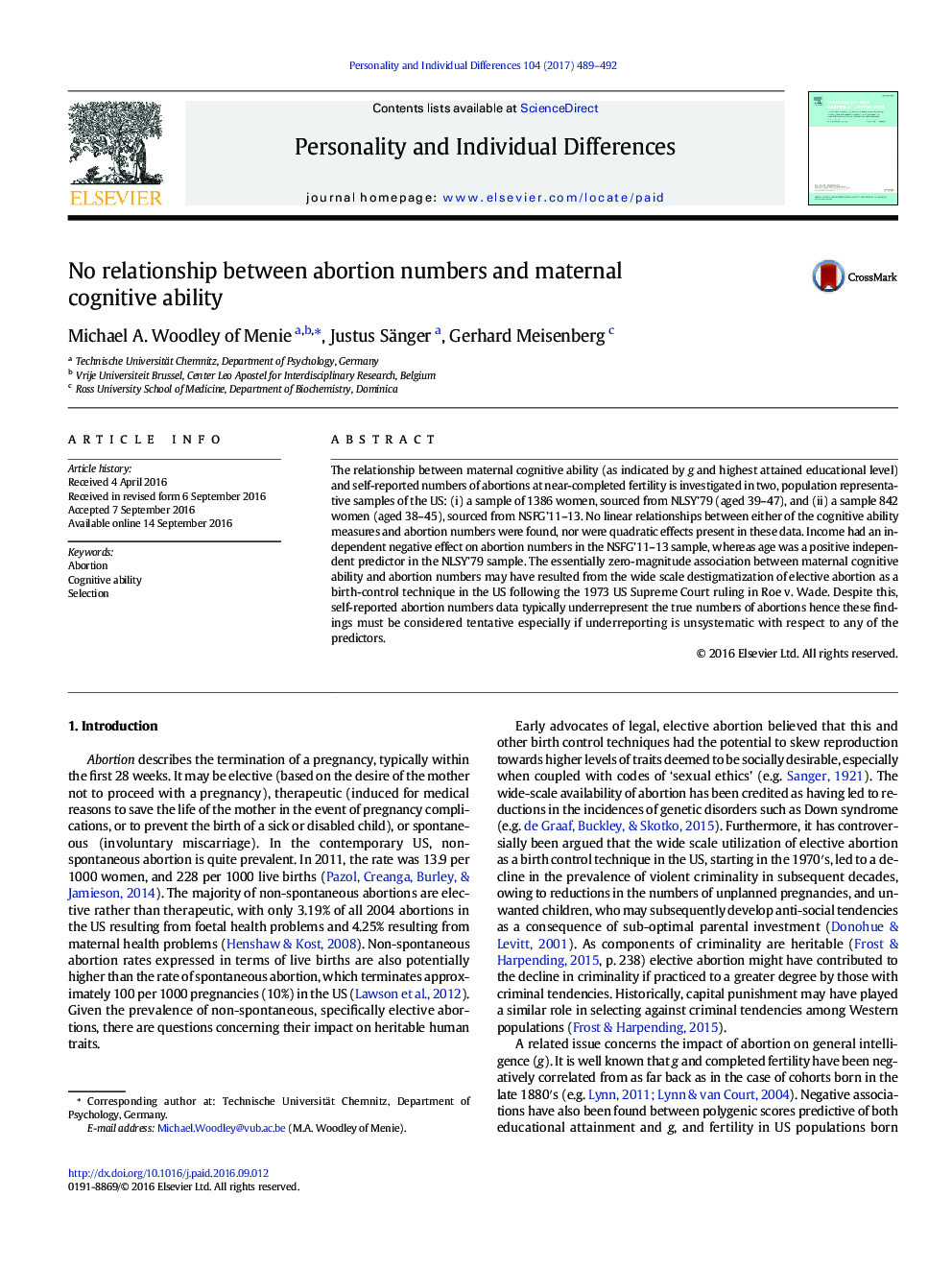| Article ID | Journal | Published Year | Pages | File Type |
|---|---|---|---|---|
| 7249561 | Personality and Individual Differences | 2017 | 4 Pages |
Abstract
The relationship between maternal cognitive ability (as indicated by g and highest attained educational level) and self-reported numbers of abortions at near-completed fertility is investigated in two, population representative samples of the US: (i) a sample of 1386 women, sourced from NLSY'79 (aged 39-47), and (ii) a sample 842 women (aged 38-45), sourced from NSFG'11-13. No linear relationships between either of the cognitive ability measures and abortion numbers were found, nor were quadratic effects present in these data. Income had an independent negative effect on abortion numbers in the NSFG'11-13 sample, whereas age was a positive independent predictor in the NLSY'79 sample. The essentially zero-magnitude association between maternal cognitive ability and abortion numbers may have resulted from the wide scale destigmatization of elective abortion as a birth-control technique in the US following the 1973 US Supreme Court ruling in Roe v. Wade. Despite this, self-reported abortion numbers data typically underrepresent the true numbers of abortions hence these findings must be considered tentative especially if underreporting is unsystematic with respect to any of the predictors.
Keywords
Related Topics
Life Sciences
Neuroscience
Behavioral Neuroscience
Authors
Michael A. Woodley of Menie, Justus Sänger, Gerhard Meisenberg,
